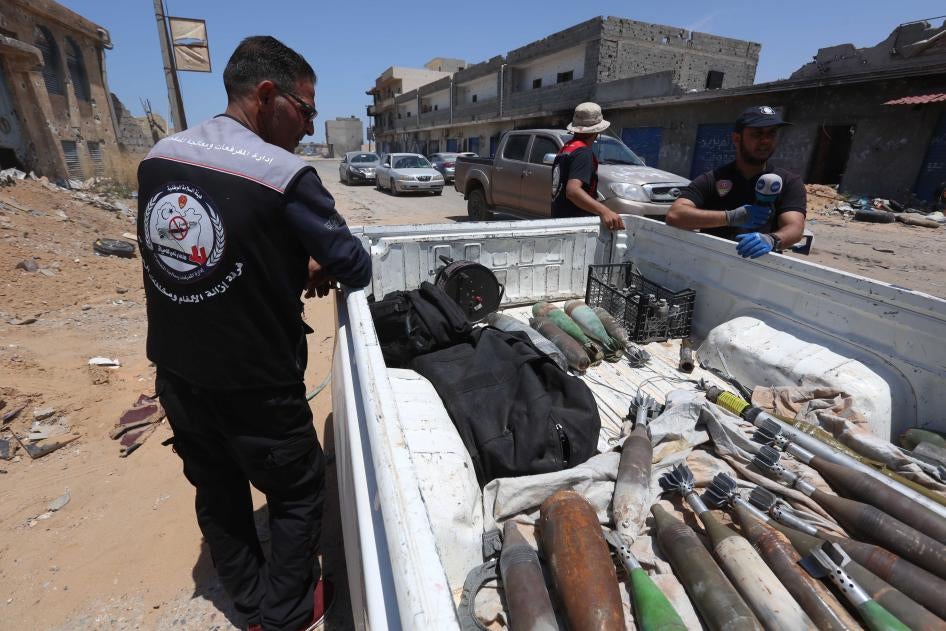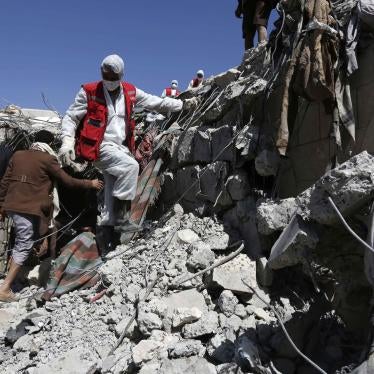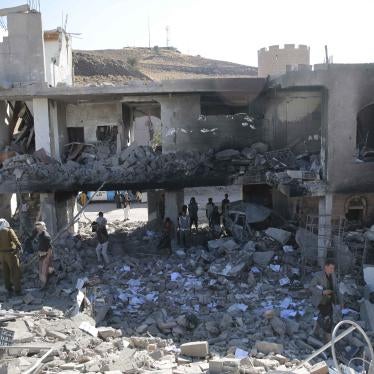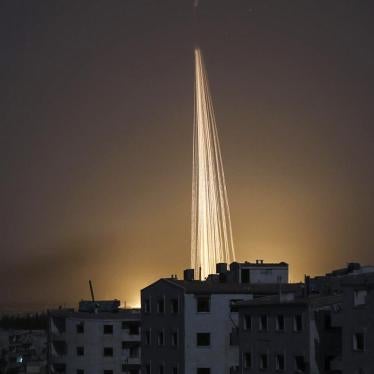A new political declaration to protect civilians from the devastating effects of explosive weapons when used in populated areas during wartime was adopted by 82 countries, in Dublin, on 18 November.
It received significant endorsement by 23 Nato states including Canada, France, Germany, Italy, Turkey, and the United States.
In the conflict-ridden Middle East and North Africa only Kuwait, Morocco, and Palestine were among the signatories.
Globally, wars are being fought increasingly in urban areas, putting millions of civilians at risk from explosive weapons with wide area effects.
They include aerial bombs, rockets, missiles and artillery, and mortar projectiles, which have a large blast and fragmentation radius, are inaccurate, or deliver multiple munitions at once.
Civilians “Bear the Brunt”
Human Rights Watch has repeatedly documented that civilians bear the brunt of the use of explosive weapons.
They are killed or maimed not only during the fighting but also by unexploded ordnance once the fighting has ceased, as has occurred recently in Israeli-occupied Palestine, Yemen, Syria, Iraq, Libya, and Lebanon.
In addition, damage to or destruction of infrastructure interferes with basic services, like education and health care, which infringes on human rights and drives displacement.
As a researcher, I have seen the harm that these weapons do to civilians when used recklessly in populated areas. Whether it was the three little sisters who were killed by an air strike by the eastern-based Libyan Arab Armed Forces on their home in Tripoli, or a drone strike by the United Arab Emirates on a biscuit factory in Tripoli's suburbs that killed eight civilians, death and destruction are the immediate effect ripping families apart and destroying livelihoods.
The declaration commits governments to adopt national policies and practices to restrict or refrain from the use of explosive weapons in populated areas when harm to civilians or civilian objects is expected.
It recognizes that the direct and reverberating effects of explosive weapons are foreseeable when they are used in populated areas and includes commitments to assist victims, facilitate humanitarian access, and collect and share data about the effects of explosive weapons.
Civic groups including Human Rights Watch have been calling for years for a formal commitment by all states to curb the use of explosive weapons in populated areas.
In the May 2021 attacks by the Israeli military on the occupied Gaza Strip, the UN found that Israel's often-unlawful use of explosive weapons killed at least 129 Palestinian civilians, including 66 children, and wounded hundreds.
In Yemen, three apparently unlawful aerial attacks in January 2022 by the Saudi and UAE coalition killed at least 80 civilians, including three children, and wounded more than 100 people. In northeast Syrian cities and towns, Turkish drone attacks and shelling by Turkish-backed Syrian forces have intensified in recent months, killing and injuring civilians, including children.
Long-Term Harm
No less sinister are the long-term effects. When explosive weapons damage or destroy critical civilian infrastructure, it wreaks havoc on access to water, electricity, sanitation, education, and health care.
Explosive weapons can also harm the environment by contaminating air, soil, and water, threatening people's health, or forcing them to relocate far from their homes - in some cases causing mass migration.
Antipersonnel landmines and cluster munitions are the two types of explosive weapons already prohibited by international treaties because of their inherently indiscriminate effects on civilians. International law does not otherwise specifically prohibit the use of explosive weapons in populated areas, though certain weapons whose effects cannot be adequately limited, may be unlawful in certain situations.
While the declaration is not legally binding, countries that endorse it commit to take steps to advance the protection of civilians from explosive weapons that go beyond existing law. The law of armed conflict already prohibits attacks that target civilians, are indiscriminate, are disproportionate in their impact on civilians, or fail to distinguish between civilian and military targets.
All countries that endorse the declaration should interpret it in their national statements, policies, and legislation in the way that gives civilians the greatest possible protection during wartime. In particular, they should avoid the use of explosive weapons with wide area effects in populated areas, and restrict the use of all other explosive weapons in such circumstances.
Israel, Egypt, the United Arab Emirates, Saudi Arabia, Syria, and Libya - which in the past decade and before have participated in various conflicts and have used explosive weapons with wide area effects that killed civilians should consider endorsing the declaration as a matter of priority.
Signing a declaration is no guarantee that civilians caught in conflict won't be harmed. The sad reality is that governments and non-state actors embroiled in conflict will continue to use explosive weapons.
But if supported by a large number of countries, the declaration has the potential to reinforce the principle that using these weapons in populated areas should be avoided because the foreseeable harm to civilians is a price that no self-respecting entity should be willing to pay.
It also gives constituents and multilateral bodies the chance to hold governments to their pledges, which can be the first step toward accountability, justice, and compensation for the victims and their families.









